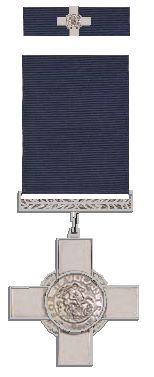List Of Australian George Cross Recipients on:
[Wikipedia]
[Google]
[Amazon]
 The George Cross (GC) is the highest
The George Cross (GC) is the highest

AM = This indicates a recipient of the Albert Medal who exchanged the award for the George Cross.
civil decoration
Civil awards and decorations are awarded to civilians for distinguished service or for eminence in a field of endeavour. Military personnel might also be eligible for services of a non-military nature. There are various forms of civil awards and d ...
for heroism in the United Kingdom, a status it also holds, or has held, in several countries comprising the Commonwealth of Nations
The Commonwealth of Nations, simply referred to as the Commonwealth, is a political association of 56 member states, the vast majority of which are former territories of the British Empire. The chief institutions of the organisation are the ...
. The George Cross ( Post-nominal letters "GC") is regarded as the civilian counterpart of the Victoria Cross
The Victoria Cross (VC) is the highest and most prestigious award of the British honours system. It is awarded for valour "in the presence of the enemy" to members of the British Armed Forces and may be awarded posthumously. It was previously ...
, and is awarded to civilians for "acts of the greatest heroism" or to military personnel for actions that are not "in the face of the enemy" or for which purely military honours would not normally be granted. In an official radio broadcast on 23 September 1940, King George VI
George VI (Albert Frederick Arthur George; 14 December 1895 – 6 February 1952) was King of the United Kingdom and the Dominions of the British Commonwealth from 11 December 1936 until his death in 1952. He was also the last Emperor of I ...
announced his decision to establish the awards of the GC and George Medal
The George Medal (GM), instituted on 24 September 1940 by King George VI,''British Gallantry Medals'' (Abbott and Tamplin), p. 138 is a decoration of the United Kingdom and Commonwealth, awarded for gallantry, typically by civilians, or in cir ...
to recognise individual acts of bravery by the civilian population. The Royal Warrant that established the awards was published in ''The London Gazette
''The London Gazette'' is one of the official journals of record or government gazettes of the Government of the United Kingdom, and the most important among such official journals in the United Kingdom, in which certain statutory notices are ...
'' on 31 January 1941. Australians received the GC under the Imperial honours system until 5 October 1992 when after more than two years of negotiations with Australian State governments, the Australian prime minister, Paul Keating
Paul John Keating (born 18 January 1944) is an Australian former politician and unionist who served as the 24th prime minister of Australia from 1991 to 1996, holding office as the leader of the Australian Labor Party (ALP). He previously serv ...
, announced that Australia would make no further recommendations for British honours. Australians are today eligible for the Cross of Valour instituted by letters patent within the Commonwealth of Australia and its Territories on 14 February 1975 under the Australian honours system
The Australian honours and awards system refers to all orders, decorations, and medals, as instituted by letters patent from the Monarch of Australia and countersigned by the Australian prime minister at the time, that have been progressively ...
.
Between the first award of the GC to an Australian in 1942 and the final bestowal to Constable Michael Kenneth Pratt
Michael Kenneth Pratt GC (born 15 November 1954) is a former constable of the Victoria Police Force in Melbourne, Australia, who received the George Cross for outstanding bravery in his efforts to thwart the armed robbery of a bank in 1976.
In ...
in 1978, 14 Australians were directly decorated with the medal. Of these, nine were awarded to military personnel and five to civilians. Eight of the medals were awarded posthumously. At the time of the institution of the GC, living recipients of the Empire Gallantry Medal
The Medal of the Most Excellent Order of the British Empire for Gallantry, known as the Empire Gallantry Medal (EGM), was a British medal awarded for acts of gallantry. Unlike the then existing Sea Gallantry Medal (SGM) (1854), the Albert Meda ...
automatically became recipients of the new award, and were required to return their previous medal; two Australians became GC holders through this method.
Exchange recipients
In 1971, the British Government announced that living recipients of the Albert Medal andEdward Medal
The Edward Medal was a British civilian decoration which was instituted by royal warrant on 13 July 1907 to recognise acts of bravery of miners and quarrymen in endangering their lives to rescue their fellow workers. The medal was named in hono ...
would henceforth be recipients of the GC with the option of exchanging their insignia for that of the GC. The decision for such an action was the result of the decline in the status and significance of the two awards, leading recipients to feel they were not receiving the recognition they were due. Of the 27 Australian holders of the Albert Medal, six were living at the time and all opted to exchange their insignia for the GC. None of the eight Australians awarded the Edward Medal were alive in 1971, and thus no Australian became a recipient of the GC through this exchange. Including exchange awards, a total of 22 Australians were decorated with the GC.
Recipients

Direct awards of the George Cross
Empire Gallantry Medal and Albert Medal exchanges
EGM = This indicates a recipient of the Empire Gallantry Medal who exchanged the award for the George Cross.AM = This indicates a recipient of the Albert Medal who exchanged the award for the George Cross.
Notes
References
* * {{Featured list George Cross recipients